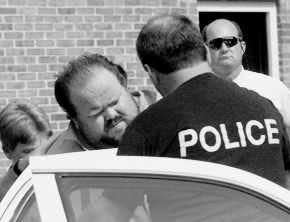'Veins could not be accessed': Alabama halts man's execution for time, medical concerns
ATMORE, Ala. – Before the clock struck midnight on Thursday, Alabama officials halted the lethal injection of a man convicted of a fatal workplace shooting in 1999 due to time concerns and problems accessing the inmate’s veins.
At about 11:30 p.m., state officials called off the scheduled execution of Alan Eugene Miller after authorities determined they could not complete the execution before a midnight deadline, Alabama Corrections Commissioner John Hamm said.
Early Friday morning, Hamm told the USA TODAY Network that prison staff could not establish intravenous access to deliver Miller's lethal injection, so the execution was postponed.
Miller's death sentence was scheduled to take place at William C. Holman Correctional Facility in southwest Alabama near Altmore, some 50 miles from Mobile.
After it was halted, Miller was returned to his cell, Hamm said. He did not provide further details as to Miller's condition.
"Due to the time constraints resulting from the lateness of the court proceedings, the execution was called off once it was determined the condemned's veins could not be accessed in accordance with our protocol before the expiration of the deadline," said Hamm.
The 57-year-old death row inmate was sentenced to death after being convicted of killing three people in a 1999 workplace rampage.

A last minute reprieve
The last-minute reprieve came nearly three hours after a divided U.S. Supreme Court cleared the way for the execution to begin.
In a 5-4 decision, justices lifted an injunction issued by a federal judge and left in place by the 11th U.S. Circuit Court of Appeals that blocked Miller’s execution from going forward.

 Yahoo Autos
Yahoo Autos 